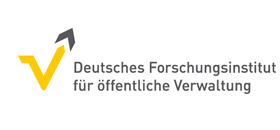Refine
Document Type
- Conference Proceeding (10)
- Article (5)
- Part of a Book (2)
- Book (1)
- Study Thesis (1)
Has Fulltext
- no (19)
Is part of the Bibliography
- no (19)
We present sec-cs, a hash-table-like data structure for contents on untrusted storage that is provably secure and storage-efficient. We achieve authenticity and confidentiality with zero storage overhead using deterministic authenticated encryption. State-of-the-art data deduplication approaches prevent redundant storage of shared parts of different contents irrespective of whether relationships between contents are known a priori.
Instead of just adapting existing approaches, we introduce novel (multi-level) chunking strategies, ML-SC and ML-CDC, which are significantly more storage-efficient than existing approaches in presence of high redundancy.
We prove sec-cs's security, publish an implementation, and present evaluation results indicating suitability for, e.g., future backup systems that should preserve many versions of files on little available storage.
The importance of frequent backups is uncontroversial. Their creation is simpler than ever today thanks to widespread availability of cheap cloud storage. Common backup solutions, however, tend to be either insecure, inflexible or inefficient in typical backup scenarios.
In this paper, we present triviback, a lightweight and almost trivial, yet powerful solution for outsourcing backups to untrusted cloud storage. Based on recent research results on secure data deduplication, triviback combines strong confidentiality, authenticity and availability guarantees with flexibility and efficiency in terms of low storage and communication costs: Triviback supports efficient preservation of many backup states with storage costs comparable to state-of-the-art version control systems-while supporting full storage reclamation on deletion of arbitrary backup states.
We discuss its security, publish an implementation and perform an extensive evaluation of storage and communication costs.

